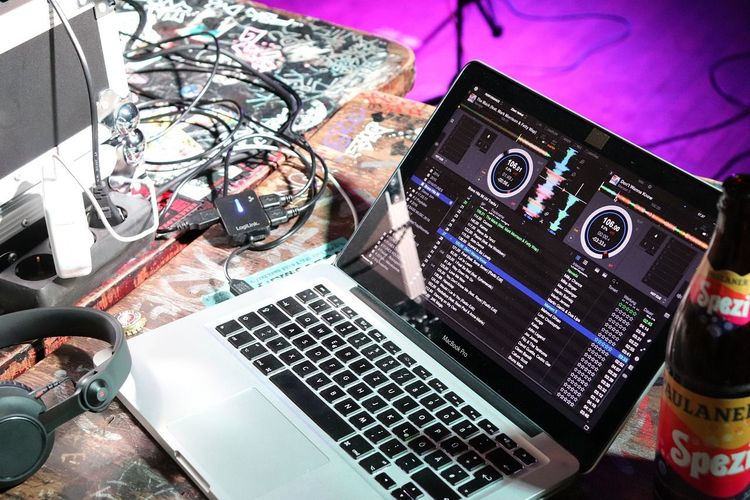After years of rivalry, Google Assistant and Alexa are finally collaborating harmoniously. Harman has just unveiled new additions to its JBL Authentics speaker series, which are the first products on the market to seamlessly integrate both Google Assistant and Alexa. The JBL Authentics 200, 300, and 500 models, equipped with features like automatic self-tuning, Bluetooth connectivity, and multi-room playback, will hit the shelves on September 17.
Historically, Google has been reluctant to allow manufacturers—beyond Sonos—to produce devices that feature both Google Assistant and Alexa. This hesitance prompted Amazon to increase its efforts not out of goodwill, but to level what it viewed as an imbalanced competitive landscape. Although Alexa boasts a substantial user base of approximately 500 million devices as of early this year, Google has enjoyed the advantage of having Google Assistant pre-installed as the default on Android smartphones. This preferential treatment once attracted scrutiny from the EU for potential antitrust violations. By 2019, Google announced that Google Assistant was available on over 1 billion devices.
In response to this rivalry, Amazon launched the Voice Interoperability Initiative in 2019. This program aimed to ensure that voice-enabled devices, including smart speakers and displays, would allow users the freedom to choose between multiple voice assistants. Google, along with other tech giants like Samsung and Apple, declined to participate at the time. However, Google's stance appears to be evolving.
When asked about this shift, Marissa Chacko, Director of Product Management for Google Assistant, downplayed the history of conflict between the two companies and posed the question: “Why not?” She emphasized, “Voice assistants have become integral to our daily routines. Both Google and Amazon aim to empower users to access either service effortlessly … Our focus is to enhance user choice, not to address capability gaps.”
With the new JBL Authentics speakers, users can utilize Google Assistant and Alexa interchangeably. For instance, if a user asks Alexa to set a timer, they can subsequently request Google Assistant to stop it when it rings—and vice versa. This synergy is enabled by Amazon’s universal device commands (UDC), a feature stemming from the Voice Interoperability Initiative. UDC enhances user experience by allowing individuals to stop ongoing tasks—like alarms or music—without worrying about which assistant was initially invoked.
Another critical aspect is that the assistants won't overlap in conversation. The Authentics speakers will intelligently manage “audio focus” to prevent Alexa from interrupting Google Assistant or vice versa. During beta trials, both companies have tested this functionality rigorously, with Aaron Rubenson, VP of Alexa, noting that users may appreciate the ability to access their favorite services from both platforms easily.
Interestingly, the executives do not worry that this collaboration will diminish user engagement with either Google Assistant or Alexa. Rubenson and Chacko view the assistants as complementary rather than competing entities. “Our goal is to enhance the customer experience by providing seamless access to both assistants,” Rubenson stated. “We anticipate customers will engage with both Alexa and Google Assistant on the JBL Authentics 200, 300, and 500.”
Chacko elaborated, “We are dedicated to fostering a strong smart home ecosystem, facilitating easier access to preferred voice assistants. We recognize that many households utilize multiple voice assistants, which can be cumbersome. Collaborating with Amazon and Harman, we shared a vision of delivering value and choice through simultaneous access to both assistants on a single device.”
However, there are significant underlying concerns. Smart speaker sales have faced a downturn, with Q1 2023 shipments down by 30%, marking the sixth consecutive quarterly decline. A survey conducted by UpCity revealed that only half of U.S. consumers use voice search daily.
The stakes have considerably lowered, particularly since both Amazon and Google have been scaling back their investments in voice assistants. Reports indicated that Amazon could lose nearly $10 billion on Alexa and related devices in 2022 alone. Simultaneously, Google has reduced its investments in Google Assistant for both third-party devices and its own hardware lineup, even removing third-party voice games and apps from Nest Hub displays.
Declining sales are likely contributing to these shifts in corporate strategy. Making voice assistants profitable seems challenging; Amazon reportedly earned less than $2 million from Alexa apps in 2019, falling short of its $5 million target.
Despite these challenges, the collaboration between Harman and Amazon could be a one-time endeavor. Chacko hinted that future integrations of Google Assistant with Alexa would depend on user response to this current collaboration. “It's still early to assess the impact of this integration,” she noted. “While we don’t have plans to announce regarding future integrations, we are eager to see how users take advantage of concurrent access to both Google Assistant and Alexa in their homes.”
In summary, this partnership appears to be a temporary alliance rather than a longstanding agreement.







